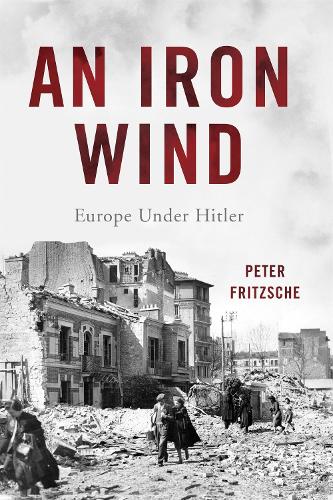
An Iron Wind: Europe Under Hitler
(Hardback)
Available Formats
Publishing Details
An Iron Wind: Europe Under Hitler
By (Author) Peter Fritzsche
Basic Books
Basic Books
25th October 2016
United States
Classifications
General
Non Fiction
Modern warfare
Genocide and ethnic cleansing
Social and cultural history
European history
940.534
Physical Properties
Hardback
376
Width 241mm, Height 165mm, Spine 33mm
584g
Description
World War II reached into the homes and lives of ordinary people in an unprecedented way. Civilian men, women, and children made up the vast majority of those killed by the war, and the conflict displaced millions more. On Europe's home fronts, the war brought the German blitzkrieg, followed by long occupations and the racial genocide of the Holocaust. In An Iron Wind , historian Peter Fritzsche draws on diaries, letters, and other first-person accounts to show how civilians in occupied Europe struggled to understand this terrifying chaos. As the Third Reich targeted Europe's Jews for deportation and death, confusion and mistrust reigned. What were Hitler's aims Did Germany's rapid early victories mark the start of an enduring new era Was collaboration or resistance the wisest response to occupation How far should solidarity and empathy extend And where was God People tried desperately to answer such questions and make sense of the horrors around them, but the stories they told themselves often justified a selfish indifference to their neighbours' fates.Piecing together the broken words of World War II's witnesses and victims,probing what they saw and what they failed to see,Fritzsche offers a haunting picture of the most violent conflict in modern history.
Reviews
A profoundly significant exploration of how Europeans-both Germans and those under German occupation-struggled to make sense of the conflict by giving it some shape or meaning, or by simply accepting in the end that it made no sense... In a strikingly original chapter [Fritzsche] explores the question of where God stood in people's accounts of wartime excesses... It is difficult to do full justice to the richness and range of sources that Mr. Fritzsche has unearthed. The book is very much a history from below, providing glimpses of the reality, but it reflects the way that many ordinary people experience catastrophe then and now. * Wall Street Journal *
A work of deep reflection by an experienced historian rather than an attempt to capture the history of World War II from any particular angle. Still, his announced theme - the moral challenges of the war for civilians in Europe - gives way at the beginning to set pieces on other subjects: the ones, the reader suspects, that Fritzsche finds most interesting. It is a pleasure to follow along.
-- Timothy Snyder * New York Times Book Review *Author Bio
Peter Fritzsche is the W. D. & Sarah E. Trowbridge Professor of History at the University of Illinois. The author of nine books, including the award-winning Life and Death in the Third Reich, he lives in Urbana, Illinois.
